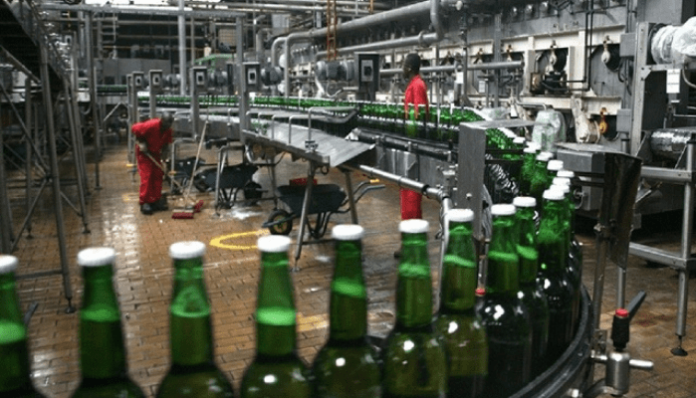BY IDIKA AJA
NIGERIAN Breweries (NB) has spent the past two years drowning in currency devaluation challenges, high finance costs and an unsustainable debt burden.
Investors who had stuck with the Heineken-owned company saw its share price slide 12% in 2023 and another 12% in 2024, a sobering performance in a market where other consumer stocks found respite.
A N548.7 billion rights issue in 2024, the largest in the company’s history appears to provide a life raft.
The company’s Q4 2024 results suggest it might be working. Revenue soared 89%, and, more importantly, net finance costs dropped by 75%, as the fresh capital injection was used to deleverage its FX exposure.
Management affirmed during the February 14 earnings call: “The proceeds from the rights issue have been utilized to significantly reduce future currency risks.”
For the first time in two years, NB eked out a quarterly profit. This helped to push the full-year revenue to N1.1 trillion marking 81% YoY growth. The bulk of this surge was not driven by a major expansion in demand but by aggressive price hikes; first in August 2023, and again in February 2024 as the company sought to offset rising inflation and currency devaluation.
According to the Heineken N.V. reports on 2024 full-year results, net revenue in Nigeria grew organically in the high seventies, driven primarily by significant price increases to counter inflation and a material currency devaluation.
Despite these pressures, total volume still grew in the low teens, with beer volume growth in the mid-teens, ahead of the market. The company navigated surging inflation and severe currency devaluation through a combination of gross savings initiatives to manage costs, the temporary suspension of two breweries and disposal of its stake in Champion Breweries.
But in an economy where inflation hovers above 33% and food inflation exceeds 40%, disposable incomes are shrinking, and discretionary spending is under severe pressure, raising concerns about the long-term sustainability of demand in the beer market.
While some middle-class consumers may tolerate a higher tab for a bottle of Heineken or Desperados, the mass market NB’s bread and butter has fewer options beyond belt-tightening.
The restructuring in 2024, including the right issue has greatly improved the company’s financial health. Before the restructuring, for every N1 of its own money (equity), the company had N5.40 in debt; meaning it was heavily reliant on borrowed funds. Now, that number has dropped to just 45 kobo of debt for every N1 of equity, making it much more financially stable.
Similarly, its equity multiplier; a measure of how much debt is used to finance assets has fallen sharply, meaning the company now relies more on its own funds rather than borrowed money to run its operations.
But this does not mean it has turned the corner?. Despite revenue growth and cost-cutting measures including shutting two breweries and selling its stake in Champion Breweries operating profit margins still dropped to 6.45%.
At the same time, NB’s interest coverage ratio declined from 1.22x in 2023 to 0.71x in 2024, an alarming signal that earnings are struggling to keep up with debt obligations.
To make matters worse, net finance costs surged by 34%, driven by currency devaluation and high borrowing costs, pushing pre-tax losses deeper into the red from N145.2 billion in 2023 to N182.9 billion in 2024.


